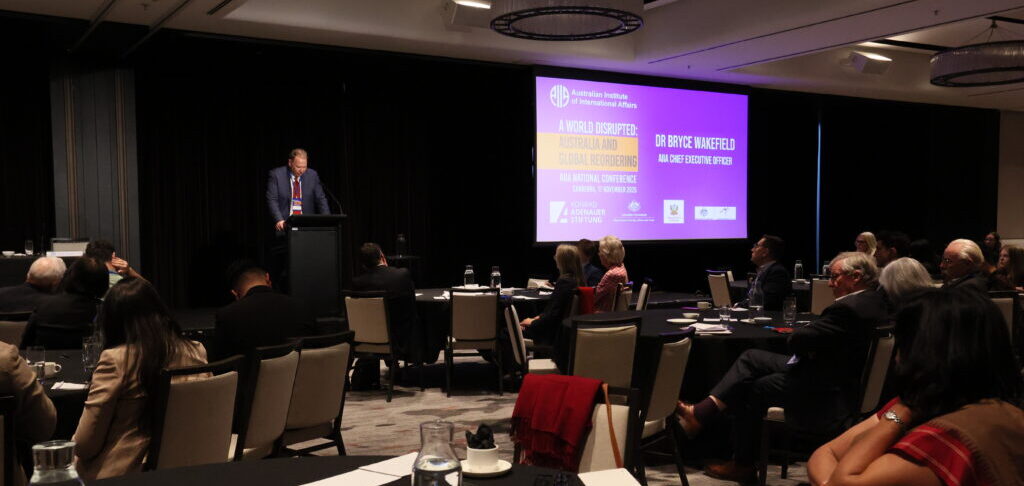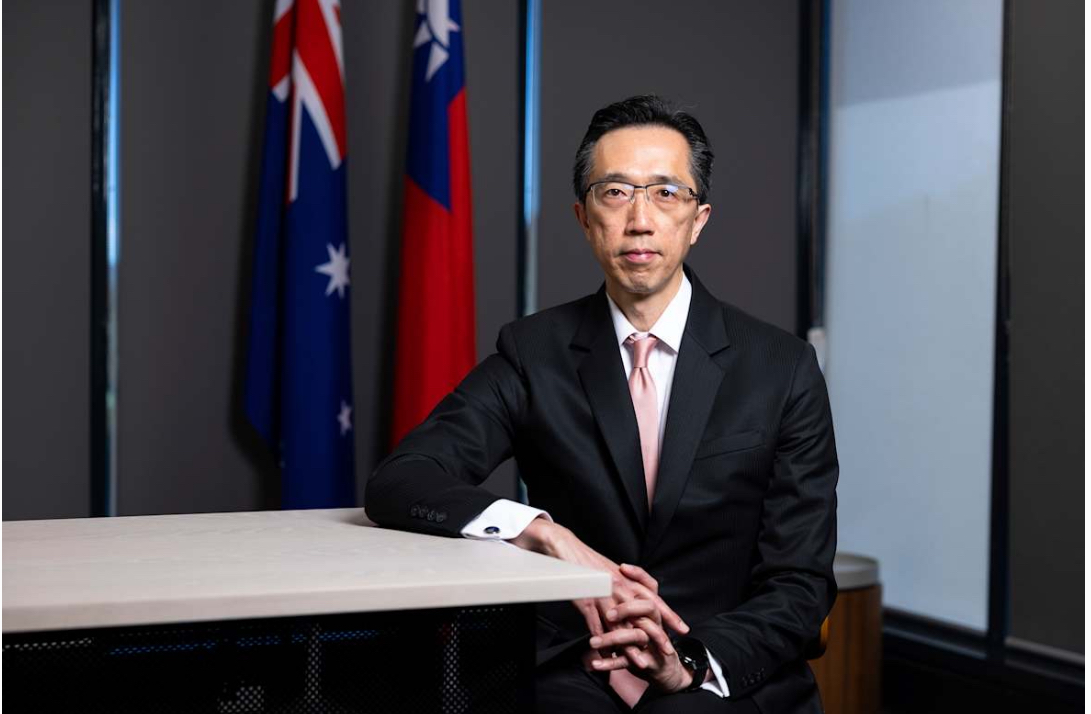Australian beef and lamb are pivotal to Japan’s growing Muslim-friendly tourism industry, driven by the increasing demand for halal-certified products. While Ramadan and Eid are peak seasons for halal businesses in Muslim–majority countries, Japan’s unique position highlights the intersection of global food cultures, trade, and tourism, particularly within Tokyo’s evolving hospitality scene.
Australian beef has been a key export to Japan for decades and remains one of Australia’s top four exports to the country, alongside coal, natural gas, and iron ore and concentrates. Since the signing of the Agreement on Commerce in 1957, trade between Australia and Japan has strengthened, and by 1966, Japan became Australia’s second-largest export market. As of January 2025, Japan is Australia’s second-largest beef export market, after the United States. Similarly, Australian lamb has steadily gained popularity in Japan, despite lamb not being a traditional part of Japanese home cooking. This growth can be traced back to 2003, when a Bovine Spongiform Encephalopathy (BSE) outbreak led to a ban on U.S. beef imports in 2004, creating a surge in demand for Australian beef and lamb.
More recently, my research on Muslim-friendly tourism and the halal industry highlights the increasing role of Australian beef and lamb in catering to the dietary needs of Muslims in Japan. This trend is particularly evident in Tokyo, which functions as a culinary global city—a term that builds on Saskia Sassen’s concept of global cities as key hubs in the networked global economy. As a global city, Tokyo fosters cross-border connections and has a dynamic culinary landscape where Muslim-friendly restaurants rely on halal-certified Australian meat to cater to international visitors. This reflects how global food cultures intersect with trade, tourism, and urban networks in Japan’s evolving hospitality industry.
Since reopening its borders in October 2022 after the COVID-19 pandemic, Japan has made significant effort to promote tourism as a key economic driver. This initiative has been ongoing since the early 2010s, particularly in Tokyo, where publications like the Tokyo Muslim Traveler’s Guide offer information on prayer spaces, halal dining, shopping, and accommodation. Southeast Asia, home to some of the world’s largest Muslim populations, has been a primary focus of Japan’s tourism strategy.
With Ramadan and Eid holiday approaching, it is timely to reflect on the rise of Muslim-friendly tourism in Japan and its link to Australia’s meat industry. Japan has been ranked among the top five non-OIC (Organisation of Islamic Cooperation) member countries for Muslim-friendly travel, according to the Mastercard-CrescentRating Global Muslim Travel Index. In 2024, Japan was ranked in the top eight non-OIC destinations. Notably, in 2019, Japan was ranked among the top three non-OIC countries, following Singapore and Thailand. The growing recognition of Japan’s Muslim-friendly services is reflected in the Japan Muslim Travel Index (JMTI), a report published in 2017 through collaboration between Mastercard CrescentRating and Halal Media Japan.
The rise of Muslim-friendly tourism and the halal industry in Japan is closely tied to the growing Muslim presence in the country. Japan’s halal industry dates back to the 1980s economic bubble, which attracted foreign workers, including Muslims. Today, Indonesia, Pakistan, Bangladesh, and Iran make up the largest Muslim communities in Japan, with estimates suggesting 80–90% of Muslims are foreign-born. In 2020, it was estimated that Japan had around 230,000 Muslims, accounting for less than 1% of the total population, although official data is unavailable.
The number of Muslim visitors to Japan has significantly increased, particularly from Southeast Asia. Although not all visitors from Malaysia and Indonesia are Muslims, these two countries have the largest Muslim-majority populations in the region. This surge was driven by Abenomics policies, which relaxed tourist visa regulations for Malaysia and Thailand in 2013, and for Indonesia, the Philippines, and Vietnam in 2014. The weakening of yen further stimulated inbound travel. Recognising the economic potential of Muslim-friendly tourism, and given Japan’s long recession, the government has actively promoted the industry. In 2008, the Ministry of Land, Infrastructure, Transport and Tourism established the Japan Tourism Agency (JTA) to develop and expand tourism. The success of these efforts became evident in 2014, when the number of Malaysian and Indonesian visitors increased by 41% and 16% respectively. More recently, in 2024, the Japan National Tourism Organization (JNTO) reported a 21.9% increase in Malaysian tourists and a 27.5% rise in Indonesian visitors in the first half of the year, compared to the same period in 2023.
Japan has actively developed its Muslim-friendly tourism, despite varying interpretations of what this term encompasses. The main focus has been on ensuring the availability of Muslim-friendly food and prayer spaces. Prayer facilities have expanded at major airports like Haneda and Narita, railway hubs like Tokyo Station, and key tourist sports. A 2016 report from JMTI stated that 800 restaurants claimed to be “Muslim friendly,” but only 150 had halal certification. Notably, according to halal certification bodies I spoke to, most halal-certified restaurants are owned by Japanese business owners, reflecting a growing awareness of the global halal market.
The Role of Australian Meat in Japan’s Muslim Tourism Industry
The increasing Muslim presence in Japan highlights the importance of Australian meat in meeting the dietary needs of Muslim tourists. Many visitors I interviewed mentioned that finding halal food, especially meat, is essential. One of them remarked, “Finding a prayer space is important, but we can pray anywhere as long as it is clean. However, finding halal food, especially halal meat, is a must for us. We know from news, reviews, and social media posts that it’s easy to find halal restaurants serving halal meat in Japan, so for us, Japan is an excellent choice for a holiday as Muslims”.
While Australia is a key supplier of halal-certified meat, other countries, such as Brazil, Turkey, and Thailand, also contribute to the market, with Brazil being a major supplier of halal chicken. Australian beef has become a staple in Japan’s grocery markets, available in halal supermarkets like Bongo Bazar and Green Nasco, as well as in international supermarkets that cater to imported products like Gyomu.
Japanese consumers and restaurant operators continue to associate Australian beef and lamb with safety, superior quality, and halal certification. This unique positioning allows Australian meat to play a pivotal role in Japan’s expanding Muslim-friendly tourism industry.
As the Muslim population in Japan grows, many assume that Australian meat sold in retail outlets is halal-certified. Muslim influencers play a crucial role in shaping these perceptions. Information about halal meat is often disseminated through social media posts by Muslim-related influencers. Many Muslims in Japan, who rely on these influencers for guidance, believe that most Australian meat in Japan is halal, and much of it is, for example, beef imported from Kilcoy Global Foods in Queensland, which has been exporting chilled beef to Japan since 1965, is widely recognised by the Muslim community as halal-certified. Similarly, Hillside Meat Processors in Western Australia, certified by Halal certification Authority Australia, supplies halal-certified carcass, offal, runners, tripe, goat, lamb, and sheep meat to Japan.
While Japan preserves its cultural distinctiveness, particularly with its ethnonationalist sensibilities, its major cities, especially Tokyo–with its global city status, are increasingly integral to the global culinary landscape, including the growing demand for Muslim-friendly offerings. With Ramadan and Eid upcoming, periods of high meat consumption for Muslims, Japan has capitalised on the influx of Muslim visitors. Australian beef has also secured a strong position within Japan’s halal food cultures and practices.
A/Prof Eva F Nisa is a cultural anthropologist at the Australian National University and holds an Australian Research Council (ARC) Discovery Early Career Researcher Award (DECRA). Her DECRA project focuses on the standardisation of the halal industry. This article draws on her research as an International Research Fellow with the Japan Society for the Promotion of Science (JSPS) under the Invitational Fellowships for Research in Japan (Short-term).
This article is published under a Creative Commons License and may be republished with attribution.




